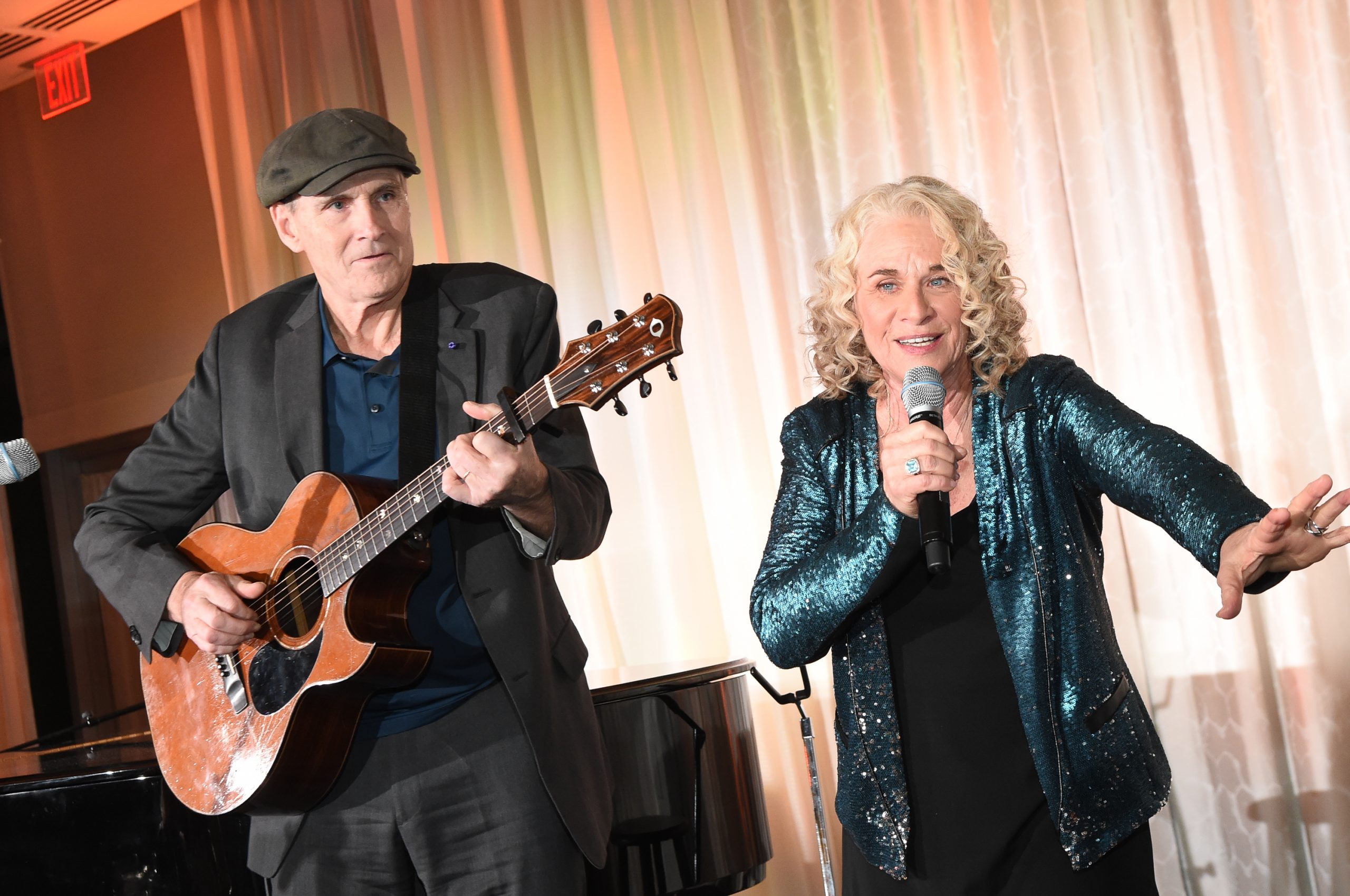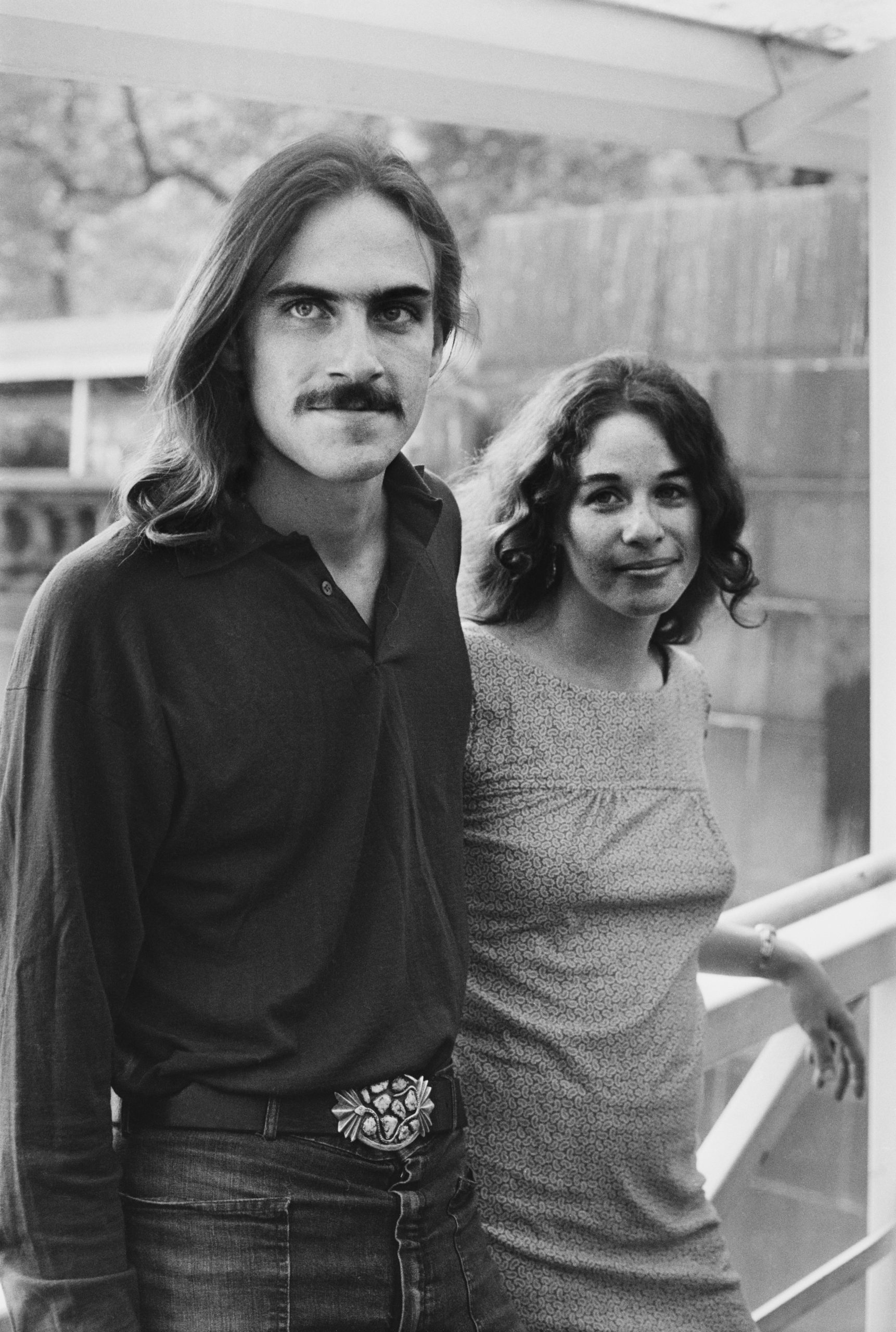Have you ever wondered about the financial standing of music legends, those incredible artists whose songs have shaped generations? It's a natural curiosity, really. When we think of someone like Carole King, whose melodies have been the soundtrack to so many lives, questions about her wealth often come up. People are interested in knowing how a career built on heartfelt songs and powerful performances translates into financial success.
Carole King's career is truly one for the ages. She started out writing hits for other artists, then became a superstar in her own right with a groundbreaking album. Her influence on popular music is just immense, and her songs continue to resonate with listeners all over the globe. So, it's pretty clear why folks might be curious about the money side of such a long and impactful journey.
This article will look into the various parts of Carole King's financial story. We'll explore where her wealth comes from, from her early days as a songwriter to her massive success as a solo artist. We will also talk about the challenges of estimating a public figure's net worth, and what her financial standing might mean for her lasting legacy. You know, it's like trying to put together a big puzzle, with many pieces contributing to the whole picture.
Table of Contents
- Who is Carole King? A Look at Her Life and Career
- The Foundations of Her Fortune: Songwriting Genius
- From Songwriter to Superstar: The Breakthrough Era and Beyond
- Other Streams of Wealth: Investments and Ventures
- Estimating the Figures: What Contributes to Carole King's Net Worth?
- Financial Legacy: A Lasting Impact
- Frequently Asked Questions About Carole King's Finances
Who is Carole King? A Look at Her Life and Career
Carole King, born Carol Joan Klein, has had a truly remarkable life in music. She began playing piano at a very young age. Her natural gift for melody was evident early on. She grew up in New York City, a place full of music and creative energy. This environment surely helped shape her early artistic leanings. She attended Queens College, where she met Gerry Goffin, who would become her songwriting partner and first husband. Their partnership became legendary in the music business.
Her career really took off in the late 1950s and early 1960s. She worked in the famous Brill Building, a hub for songwriters in New York. There, she and Goffin wrote many hit songs for other artists. These songs became massive successes for groups and singers of the time. This period established her as a truly important figure behind the scenes in music. It set the stage for everything that came after, really.
Later, she stepped into the spotlight as a performer. Her solo career brought her even greater fame and recognition. She released her own songs, sung in her own voice. This move showed the world her talent as a singer and a solo artist. Her impact on popular music has been deep and wide-ranging, influencing many artists who came after her. She truly changed the way people thought about songwriters and performers.
Personal Details & Bio Data
| Full Name | Carol Joan Klein |
| Known As | Carole King |
| Date of Birth | February 9, 1942 |
| Place of Birth | Manhattan, New York City, U.S. |
| Nationality | American |
| Occupation | Singer, Songwriter, Musician, Actress |
| Genre | Pop, Rock, Soft Rock, Folk Rock |
| Years Active | 1958–present |
| Spouses | Gerry Goffin (m. 1959; div. 1968), Charles Larkey (m. 1970; div. 1976), Rick Evers (m. 1977; died 1978), Rick Sorenson (m. 1982; div. 1989) |
| Children | 4 |
The Foundations of Her Fortune: Songwriting Genius
Carole King's financial story starts with her incredible gift for writing songs. Before she became a famous performer, she was a prolific songwriter. She penned hit after hit for other musicians. This work, done mostly in the 1960s, was very important. It built the first big part of her wealth. She wrote songs that became chart-toppers for many different artists, you know, making them stars in their own right.
The Brill Building era was a special time for her. She and Gerry Goffin created a string of songs that defined a generation. These tunes were catchy, heartfelt, and just perfect for the artists who sang them. Think of classics like "The Loco-Motion" for Little Eva, "Will You Love Me Tomorrow" for The Shirelles, or "Up on the Roof" for The Drifters. Each of these songs generated income for her through royalties. These royalties are payments made to songwriters and composers every time their work is used or performed. This income stream, honestly, continues even today, which is pretty amazing.
The sheer volume of her early work is staggering. She wrote hundreds of songs, many of which became massive hits. This meant a steady and growing stream of money. Her talent was in high demand. Other artists wanted to record her songs. This created a strong financial base for her. It was a very smart way to start a career in music, building a foundation before stepping into the spotlight herself.
Iconic Songs and Lasting Income
The songs Carole King wrote for others continue to earn money. Every time one of those songs is played on the radio, used in a movie, or streamed online, she receives a payment. These are called performance royalties, synchronization royalties, and mechanical royalties. Performance royalties come from public broadcasts or performances. Synchronization royalties come from use in visual media, like TV shows or films. Mechanical royalties come from physical sales or digital downloads. It's a system that keeps giving back, sort of like a well-maintained machine that keeps running smoothly.
Consider the enduring popularity of songs like "One Fine Day" by The Chiffons or "Pleasant Valley Sunday" by The Monkees. These songs are still heard today, decades after their release. They are licensed for commercials, covered by new artists, and played on classic rock stations. Each new use adds to her earnings. This shows how a truly great song can have a very long life, financially speaking. It's a testament to the timeless quality of her writing.
This ongoing income from her songwriting catalog is a significant part of her overall wealth. It's a consistent flow of money that doesn't depend on her actively touring or releasing new music. It's a passive income, in a way, built on the strength of her past creative work. This kind of steady income is very valuable for anyone, and especially for artists whose careers span many decades. It provides a solid financial cushion, allowing her to pursue other projects or just live comfortably.
From Songwriter to Superstar: The Breakthrough Era and Beyond
While her songwriting for others brought her early success, Carole King's financial picture changed dramatically with her solo career. Her breakthrough solo album, released in 1971, was a monumental success. It sold millions of copies worldwide and spent a very long time at the top of the charts. This album transformed her from a respected songwriter into a global superstar. The shift meant a huge increase in her earnings, really, from a different kind of income.
That highly successful solo record contained many songs that became instant classics. Songs like "I Feel the Earth Move," "It's Too Late," and "You've Got a Friend" resonated deeply with listeners. These songs were not just popular; they became anthems for many people. The album's widespread appeal meant massive sales, which translated into significant income from record royalties. These royalties are paid to the artist for each album sold. The scale of this album's success was just unprecedented for her.
Following the success of that iconic record, Carole King embarked on extensive concert tours. Performing live is another major source of income for musicians. She played to sold-out crowds around the world, bringing her music directly to her fans. These concerts generated substantial revenue from ticket sales. Touring also helped promote her albums and keep her music in the public eye, creating a positive cycle for her finances. It's almost like a self-sustaining system for earning money, you know?
Album Sales and Concert Earnings
The sales of her solo albums, especially that famous one from 1971, contributed immensely to her net worth. That particular album is one of the best-selling albums of all time. The sheer volume of units sold meant millions of dollars in royalties over the years. Even today, people buy and stream her classic albums, which means continued earnings for her. It's a testament to the lasting appeal of her recordings. You know, some music just never gets old.
Beyond that initial huge success, she released many other albums throughout her career. While none reached the same heights as her breakthrough, they still sold well and added to her overall earnings. Each album release meant new opportunities for sales and royalties. This consistent output of new music helped maintain her presence in the music world and kept her income streams flowing. It shows a very steady approach to her career, I think.
Concert tours were another big earner. Performing live allows artists to connect with their audience and generate direct income. Carole King's tours were often very successful, drawing large crowds. The revenue from ticket sales, merchandise, and related activities added considerably to her financial standing. For a performer with her enduring popularity, touring can be a very profitable venture. It's a different kind of income than songwriting royalties, but just as important for a performing artist. She's been on the road many times, bringing her songs to people directly, and that's a big part of it.
Other Streams of Wealth: Investments and Ventures
Beyond her direct music earnings, Carole King, like many successful individuals, likely has other sources of wealth. These can include various investments. Over a long career, smart financial planning can lead to significant growth in assets. This might involve real estate, stocks, or other types of ventures. These additional income streams help to build a more diverse and stable financial picture. It's a pretty common way for people with substantial earnings to grow their money.
For instance, real estate holdings can be a valuable asset. Properties can appreciate in value over time, adding to a person's overall net worth. While specific details about her real estate portfolio are not public, it's reasonable to assume that someone with her long-term success would have invested in properties. These investments can provide both a place to live and a way to grow wealth. It's a very practical approach to managing money.
She has also participated in various media projects and endorsements over the years. These can include appearances in documentaries, special performances, or even commercial partnerships. Each of these opportunities can add to her income. While perhaps not as large as her music royalties, they contribute to the overall picture. These ventures show her continued relevance and appeal to a wider audience, which is a big part of maintaining a public profile. It's almost like her presence itself becomes a source of value.
It's also worth noting that artists often have publishing companies or other business entities that manage their intellectual property. These entities can generate income from licensing her music for various uses, beyond just album sales and radio play. This includes things like sheet music sales, usage in video games, or even educational materials. These are more subtle income streams, but they add up over time. It's a comprehensive way to manage the business side of a music career.
Estimating the Figures: What Contributes to Carole King's Net Worth?
Estimating the exact net worth of a public figure like Carole King can be quite tricky. Most figures you see online are just estimates. They are based on publicly available information, such as album sales, tour grosses, and general industry knowledge about royalty rates. However, personal finances, private investments, and living expenses are not usually public. So, any number is really just an educated guess. It's important to keep that in mind when looking at these figures.
You know, it's interesting how some things, like the systems mentioned in My text – those updates for .NET Framework 3.5 or 4.8.1 for Windows 11, version 22H2, from April 22, 2025 – keep getting security and reliability improvements. It's almost like the financial picture of a public figure also gets refreshed over time, not with software patches, but with new insights into their ongoing work and lasting influence. Just as .NET 8.0 gets refreshed with the latest updates as of July 8, 2025, a person's financial standing can also be seen as evolving. The text also mentions isolating network services from different containers, which, in a very loose way, makes me think of how different income streams are kept separate, contributing to a bigger whole.
When people try to calculate a celebrity's net worth, they often look at several key areas. First, there are music royalties. This includes mechanical royalties from sales, performance royalties from radio play and public performances, and synchronization royalties from film and TV placements. These can be very substantial for someone with a catalog as deep and popular as Carole King's. They are the backbone of her long-term income, really.
Then there are earnings from touring. Concerts can bring in millions of dollars, depending on the scale of the tour and ticket prices. For an artist who has consistently toured for decades, this adds up to a very large sum. Album sales, both past and present, also contribute significantly. Even older albums continue to sell and stream, adding to the overall financial picture. It's a bit like a compounding effect, where earlier successes keep generating returns.
Finally, there are personal investments and assets. This includes real estate, stock portfolios, and any other business ventures. These are the least transparent parts of a celebrity's finances. However, they can be a very large component of overall wealth. Charitable giving and personal expenses also play a role in the actual amount of money a person holds. So, while we can't know the exact number, we can understand the many things that contribute to it.
Financial Legacy: A Lasting Impact
Carole King's financial success is a clear reflection of her immense talent and enduring impact on music. Her wealth isn't just about numbers; it represents decades of hard work, creative genius, and a deep connection with her audience. Her ability to write songs that resonate across generations has ensured a consistent stream of income, making her one of the most financially successful songwriters and performers of all time. It's a very impressive achievement, honestly.
Her financial standing allows her to live comfortably and pursue projects she cares about. It also speaks to the value of intellectual property in the music business. A song, once written, can continue to generate income for many, many years. This is a powerful lesson for aspiring artists. Building a catalog of timeless music can provide a very secure financial future. It's a kind of long-term investment in one's own creativity.
Moreover, her financial success helps secure her legacy. It ensures that her music can continue to be promoted, preserved, and enjoyed by future generations. It allows her to control her artistic output and make choices about her career without financial pressure. This kind of financial independence is a big part of maintaining artistic integrity. It’s a very positive outcome for someone who has given so much to the world of music. You know, it's about more than just money; it's about lasting influence.
Frequently Asked Questions About Carole King's Finances
Q1: What are the main sources of Carole King's wealth?
Carole King's wealth comes primarily from her songwriting royalties. These are payments from the many hit songs she wrote for other artists, and also for her own recordings. She also earns money from album sales, especially her very successful solo albums. Concert tours and live performances have also been a big source of income for her. Beyond music, she likely has income from investments and other business ventures, which is pretty typical for someone with her long-term success.
Q2: How did her solo career impact her net worth?
Her solo career, especially with her breakthrough album, had a huge impact on her net worth. That album sold millions of copies around the world, bringing in massive amounts of money from record royalties. This success allowed her to become a major touring artist, adding even more to her earnings from ticket sales and merchandise. It transformed her from a successful songwriter into a global music icon, greatly increasing her overall financial standing.



Detail Author:
- Name : Miss Pinkie Hayes Jr.
- Username : christa48
- Email : lucas.hill@mosciski.biz
- Birthdate : 1975-01-25
- Address : 8697 Myrl Springs Suite 245 Myahside, MO 77836-8286
- Phone : +18474661540
- Company : Crooks, Dickinson and Hammes
- Job : Automotive Master Mechanic
- Bio : Expedita qui dicta vero iste aut aut. Ut quis iste cumque cupiditate consectetur facilis. Non et quas dolor cum autem.
Socials
instagram:
- url : https://instagram.com/heberlowe
- username : heberlowe
- bio : Qui cupiditate maiores aut. Dignissimos dolorum illum optio ea.
- followers : 3097
- following : 2786
linkedin:
- url : https://linkedin.com/in/heberlowe
- username : heberlowe
- bio : Deleniti qui libero aliquam accusantium.
- followers : 2790
- following : 2682